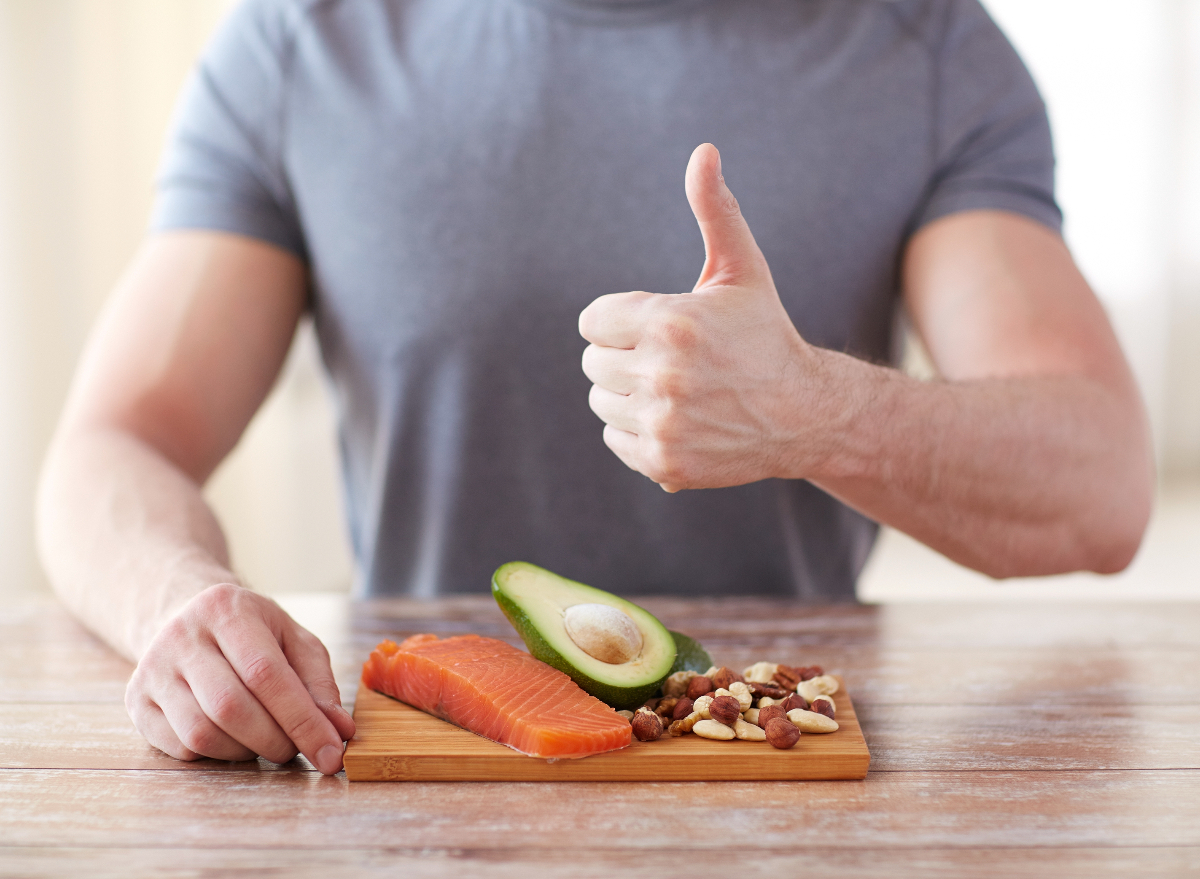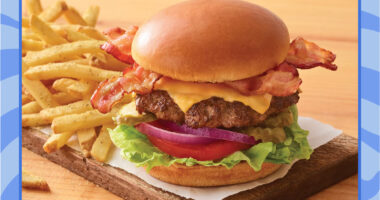If you want to lose fat but still build muscle, listen up. In addition to performing just the right muscle-sculpting, fat-burning exercises in your fitness routine, your nutrition needs some updating as well. We spoke with experts who share their best nutrition tips for men to build muscle and lose fat, so gear up to clean up your daily regimen—and reap the benefits!
“A proper nutrition regimen along with regular exercise is important for long-term sustainable results,” stresses Lisa Young, Ph.D., RDN, the author of Finally Full, Finally Slim, a nutritionist in private practice, and a member of our Medical Expert Board. “The body needs essential nutrients for muscle development and metabolic functions. Proper nutrition helps ensure adequate protein intake for muscle synthesis and to maintain hormonal balance for muscle development. On top of that, regular exercise increases metabolism and burns more calories leading to fat loss yet still preserving lean muscle mass.”
In addition, it’s important to time your nutrients. Doing so can boost your chances of growing your muscles, as it gives your body the proper nutrients at just the right times. “The best way to do this is to eat balanced meals consistently as well as consume a post-training recovery meal with appropriate macronutrients,” explains Brittany Dunn, MS, RDN, CD, a registered dietitian and chef specializing in sports nutrition who sits on our Medical Expert Board. “Even going a couple of days without adequate protein could allow you to lose muscle.”
Keep reading to learn all about the best nutrition tips for men to build muscle and lose fat. And when you’re finished, don’t miss The 5 Worst Supplements You Can Take for Muscle Growth.
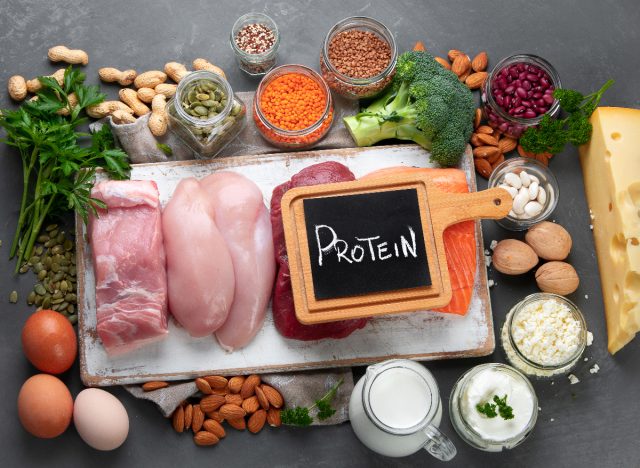

It’s crucial to maintain a balanced diet consisting of protein, macronutrients, fats, and carbohydrates. “Lean protein such as lean meats, poultry, fish, eggs, etc. is essential for muscle growth and repair,” Young tells us. “Choose complex carbohydrates including whole grains, fruits, and vegetables to provide a steady energy supply to the body.”
Carbohydrates that are quick to digest can be consumed before your workout to maintain your glycogen stores, Dunn explains. In addition, probiotics are another beneficial element to include in your diet, as they assist in controlling weight, decreasing inflammation, and supporting your GI.
Your meals after workouts should be eaten around 45 minutes after you are finished. These meals should have 20 to 30 grams of protein, along with 40 to 80 grams of carbs, Dunn tells us. Any carbs that you add assist with “protein sparing,” which is when the protein you consume is utilized to build muscle rather than being a source of energy.
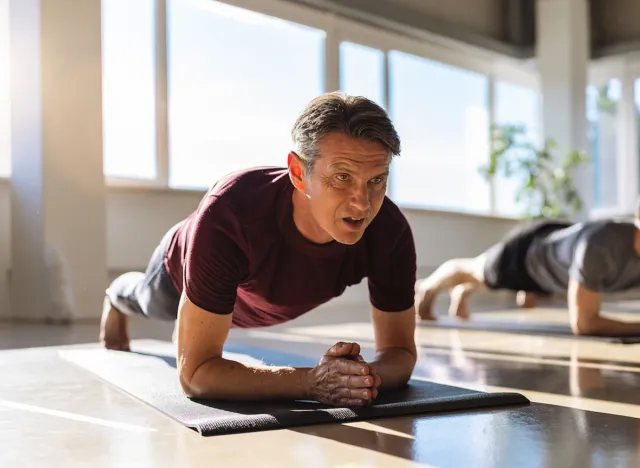

A consistent regimen of resistance training including planks, deadlifts, squats, pushups, and shoulder presses puts an emphasis on endurance and muscle strength, Young says. Including high-intensity interval training (HIIT) is another excellent form of exercise that helps you torch a greater number of calories when compared to a steady-state cardio workout. It will preserve muscle mass at the same time!
READ RELATED: From Om to IoT: Revolutionizing Yoga With Cutting-Edge Technologies
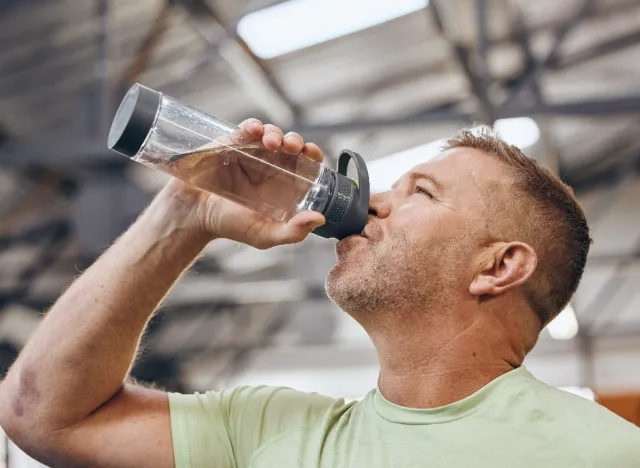

Staying hydrated is a must when it comes to promoting muscle recovery and protein synthesis after an intense workout. “Staying hydrated maintains performance during workouts to further increase calories burn, leading to an effective workout session,” Young tells us. “Furthermore, it helps with appetite control to prevent the consumption of excess calories to support goals of weight loss.”
If you’re wondering how much water to drink when working out, Dunn advises four ounces for every 15 minutes during your one-hour workout (or less). If you are exercising for more than an hour, you can switch it up with sports drinks, consuming the same amount. Staying properly hydrated is really important to relieve any soreness and tension due to working out.


Getting enough rest and sleep is another super important factor in muscle recovery after a workout. Your body needs it for strength and muscle growth. In addition, Young explains, “Enough sleep helps metabolism and fat loss as lack of sleep promotes fat storage disrupting weight loss goals. Furthermore, you are able to engage in intense exercises and lower cortisol levels for muscle growth and weight loss.”
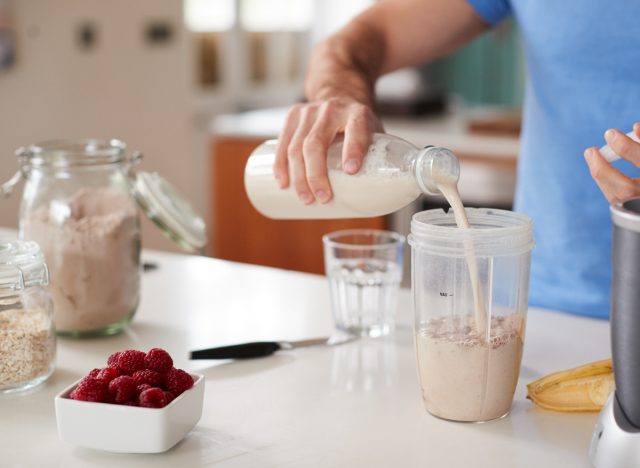

It’s always a good idea to re-evaluate how effective your new routine is every two to four weeks. And don’t be afraid to make necessary tweaks! If your regimen isn’t working because of food choices, a hectic schedule, or it’s not yielding the results you’re looking for, take small steps to adjust what you’re doing, Dunn recommends.
Alexa Mellardo

